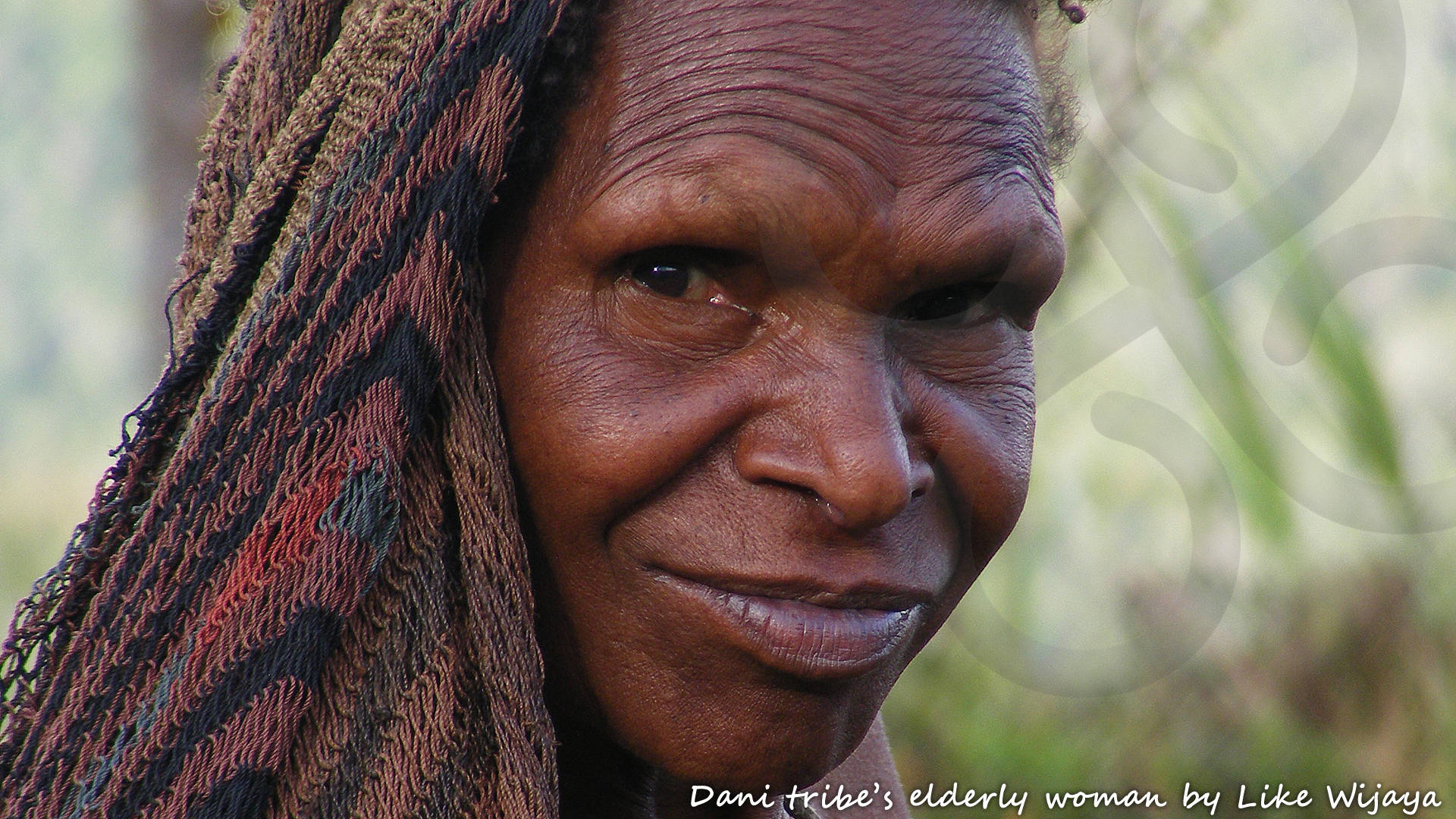The Dani people cultivated the 80 km long and up to 20 km wide Baliem upland valley in the Snow Mountains completely unnoticed by the outside world until as recently as 1938. Copyright © Like Wijaya
At EKONEXION we firmly do believe that carefully planned and implemented ecotourism may contribute significantly to both the conservation of natural habitats and the well-being of indigenous peoples. We recognize as our duty to ensure that indigenous communities do benefit, to the maximum extent possible, from the deployment of our ecotourism activities if these are to stand any chance of genuinely rivaling the ever increasing claims to deleterious resource extraction throughout West Papua. After all, people who earn a living directly through responsible travel are more amenable to actively help protecting the environment on which their livelihoods depend.
Indigenous peoples, still intrinsically connected to the natural world around them, often possess an uncanny intimacy with the specialty component of biodiversity that allures overseas visitors. Their services as guides, porters and cooks add quintessential couleur locale to your West Papua experience and are quite simply indispensable to the successful operation of a trip.
It is critically important to understand and appreciate to the fullest that all land in West Papua or on New Guinea more generally is considered to be owned by the indigenous New Guineans, the Papuans, who generally exercise strong control over land and resources. They are the true custodians and guardians of the future of these magnificently forested lands.
Land on New Guinea can be owned communally by all members of a village community, but more commonly is being subdivided between the various kinship groups that make up a community. Known as clans or bands, these kinship groups may internally be structured hierarchically, and further subdivide ownership accordingly between the different families that make up a clan.
Besides customary ownership proper, there are varying degrees of usage rights granted by landowners to community members more widely, mostly as a result of intermarriage between clans or other mutually beneficial exchanges. This leads to the ordinarily complex situation that any given plot or tract of land can be owned by a group of people, while at the same time a second group of individuals hold hunting or subsistence rights that fundamentally restrict the first group's ownership.
Thus, customary land tenure is inherently fluid and unstable because land borders between tribes, clans and families as well as granted usage rights tend to be loosely defined and remain closely linked to dynamic social processes. Unfortunately, tribal land disputes and associated feuds remain common in West Papua and are the primary cause for safety concerns in the context of tourism because improperly coordinated visitation of contentious lands by tourists may exacerbate existing problems or create new ones.
Before trespassing and making use of customary-owned land in Indonesian New Guinea, even for essentially non-invasive activities like bird-watching or nature recreation more generally, it is critically important to secure permission from all stakeholders involved through an open and fully participatory deliberation process seeking broad consensus.
At EKONEXION we are intimately familiar with the many peculiarities of social organization and associated land tenure in West Papua, and in engaging indigenous peoples in our ecotourism activities, we have always embraced a rights-based approach, strictly adhering to the principles set forth in the United Nations Declaration on the Rights of Indigenous Peoples (UNDRIP) and, more generally, the Universal Declaration of Human Rights (UDHR).
We principally adhere to customary land rights (called hak ulayat in Indonesian) and always endeavor to strengthen and revitalize customary land tenure systems, which until recently broadly sustained biodiversity at the landscape level throughout West Papua. Increasingly, however, indigenous communities throughout the territory claim access to forest resources beyond subsistence use. As such, we do reserve the right to make the magnitude of our financial compensation for deploying non-invasive ecotourism activities on ancestral lands dependent on local conservation attitudes and the degree of active participation in habitat protection by requesting village authorities and landowners.
We exclusively employ indigenous people entitled to ancestral land rights and/or actually residing at the respective sites that we visit. Because we conclude all ground arrangements with indigenous communities directly ourselves — hence effectively eliminating third party agents outside our control — and by consistently applying a competitive salary scheme, EKONEXION guarantees fair remuneration of the services indigenous people provide.
By handling trips in close collaboration and continuous consultation with the people belonging to the places that we visit, we are able to both increase their economical benefits, for instance, in the form of local purchase of food surplus, as effectively reduce our impact on traditional societies.
Finally, we are also keen on training and assisting indigenous people to stream through in our organization or to develop their own derivative businesses.
Related links
❯Browse the Papua Expeditions web site.
❯Read on about the natural wonders of New Guinea (from PapuaExpeditions.com).
❯Read on about the geopolitical and biogeographical delimitation of West Papua (from PapuaExpeditions.com).
❯Read on about the indigenous peoples of West Papua (from PapuaExpeditions.com).
❯Read on about the flora and fauna of West Papua (from PapuaExpeditions.com).
❯Read on about the birdlife of West Papua (from PapuaExpeditions.com).
